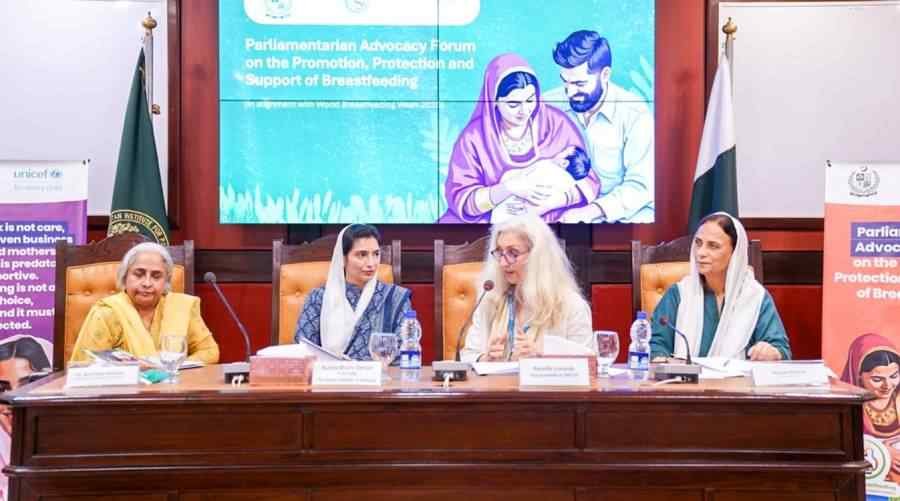Islamabad — In a rare show of cross-party consensus, Pakistan’s First Lady Aseefa Bhutto Zardari and lawmakers from multiple political factions have pledged to overhaul the country’s breastfeeding policies, aiming to protect child health, empower mothers, and curb the influence of the formula milk industry.
The commitment came during the Parliamentarian Advocacy Forum on the Prevention, Protection, and Support of Breastfeeding—a joint initiative by UNICEF and the Women Parliamentary Caucus—held at the Pakistan Institute for Parliamentary Services. Participants endorsed a joint declaration that frames breastfeeding not as a personal choice alone, but as a national investment in health and economic development.
A Call for Stronger Regulation
Sindh Health Minister Dr. Azra Fazal Pechuho, delivering the keynote address, warned lawmakers against efforts to remove formula milk from the Drug Regulatory Authority of Pakistan’s oversight.
“It is medicine, not food,” she said, insisting on strict regulation to protect infants.
Dr. Pechuho cited the Sindh Protection and Promotion of Breastfeeding and Young Child Nutrition Act, 2023, as an example of successful but hard-fought legislation. “The high court dismissed a petition against this law because the judges understood the importance of breastfeeding,” she noted.
Sindh now plans to hire lactation counsellors, expand maternal micronutrient programs, and intensify awareness campaigns. Dr. Pechuho linked low breastfeeding rates to the growing prevalence of non-communicable diseases, warning that early childhood nutrition gaps can have lifelong health consequences.
Economic and Health Stakes
Presenting data at the forum, Prof. Jamal Raza of the Sindh Institute of Child Health and Neonatology revealed that Pakistan’s low breastfeeding rates cost the country an estimated US$2.8 billion annually, including US$888 million spent on substitutes. Exclusive breastfeeding currently stands at 48.4%, well below the global target of 60% by 2030.
Health experts warned that formula feeding—especially in areas with unsafe water—can lead to malnutrition, diarrhoea, and increased risk of chronic diseases later in life. Raising exclusive breastfeeding to 70%, they estimated, could save 34,000 children’s lives and cut healthcare costs by US$55 million each year.
Nationwide Reform Urged
UNICEF’s Pakistan Representative Pernille Ironside called on federal and provincial governments to replicate Sindh’s law nationwide. “This is not just a women’s health issue—it’s a national development priority,” she stressed.
Experts and lawmakers urged:
- Extending maternity leave to six months
- Banning online advertising for formula milk
- Promoting “kangaroo care” to strengthen mother–infant bonds
- Securing sustainable funding for maternal and child nutrition programs
A Cross-Party Commitment
The declaration, signed by parliamentarians from PPP, PML-N, PTI, JUI-F, and MQM—predominantly women—commits to enacting breastfeeding-friendly legislation, ensuring law enforcement, and integrating breastfeeding support into all healthcare levels.
First Lady Aseefa Bhutto Zardari’s presence at the event was notable, signaling political will from the highest levels. UNICEF officials described it as a milestone moment, but stressed that without sustained political pressure and public engagement, Pakistan risks falling further behind on global child nutrition goals.

